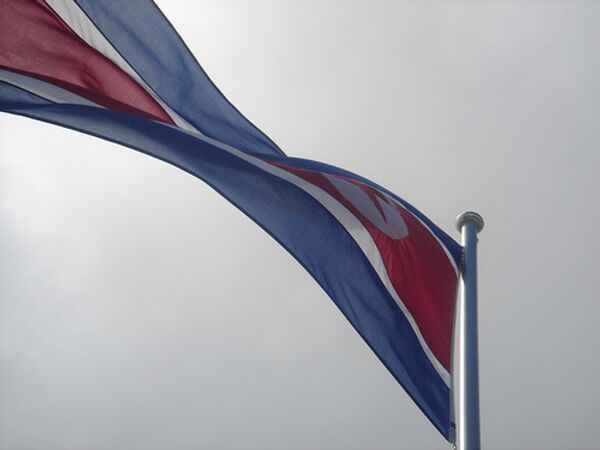North Korea is unlikely to give up its nuclear program and Russia has to take this fact into account to adjust its policy towards the reclusive Communist state, Russian experts said on Tuesday.
Earlier on Tuesday, President Dmitry Medvedev signed a decree putting in force sanctions imposed by the U.N. Security Council against Pyongyang over its 2009 nuclear test. The international community is trying to force North Korea to give up its nuclear weapons and halt its nuclear arms program.
"Unless the current rules of the game change, we cannot expect a voluntary denuclearization of North Korea," Georgy Toloraya, the director of Korean programs at the Institute of Economy told an expert conference in Moscow.
He said that attempts to force North Korea to give up all its nuclear programs would "contradict the Nuclear Nonproliferation Treaty" and that Pyongyang had enough human and technological resources to renew nuclear research anytime in the future.
Efforts by the group of six international negotiators, including both Koreas, the United States, Russia, Japan and China, have failed to persuade Pyongyang to stop its nuclear program. Moreover, during the lengthy talks North Korea announced the creation of its own nuclear weapons and tested them in 2006 and 2009.
"The complete elimination of the existing nuclear capacity of North Korea is not an absolute priority for us which would dominate over all other goals as declared by the United States, South Korea and Japan," Toloraya said.
We should be aware of the fact that "if this happens without a solid system of collective security in the region, the military risks may actually increase," he added.
Toloraya urged not to repeat the mistakes of the 1990s, when "by making nuclear non-proliferation an icon in a bid to use this as a trump card in relations with the U.S., we were sidelined from the process of the Korean settlement in general."
Alexander Vorontsov, the head of Korean department at the Institute of Oriental Studies, said that Russia is currently formulating its North Korean policy as a part of broader global relations with the United States.
"It is not surprising that in such a scenario, the possibility of establishing a trusting relationship between Moscow and Pyongyang is almost impossible," he said. "A real chance of Russia to act as an independent player, capable of making a real impact on the development of the situation around the Korean affairs, is close to zero."
"There is a real need to break this unfavorable trend" he said.
The director of the Center of Korean Studies Institute of Far Eastern Studies, Alexander Zhebin, said Russia would lose nothing if it dropped out of the six-way talks.
.
"Russia has nothing to lose by not participating in the negotiations, the timing of which is uncertain while the results are unpredictable and unlikely to satisfy either of the parties involved," he said.
"Sooner or later Russia will be invited (to mediate). And this will happen even faster .... if it carries out a clear and independent line in Korean affairs," the expert said.
Zhebin said however that Russia should not expect to play the first fiddle in the Korean settlement.
"There are more powerful and more interested players," he said.
MOSCOW, March 30 (RIA Novosti)




